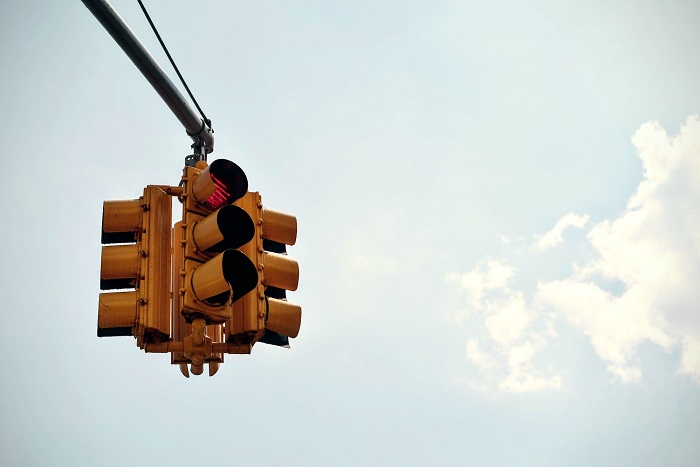ISABEL RUBIO ARROYO | Tungsteno
While some German cities have switched off some underused traffic lights and dimmed much of the street lighting at night, France has banned businesses that use air conditioning from leaving their doors open. All these measures have a very ambitious goal: to reduce the EU's gas consumption and to have sufficient reserves to get through the winter. Having looked at the technologies that aim to replace Russian gas, we now turn to the main gas-saving measures adopted by EU member states.
Saving gas for a safe winter
Russia's invasion of Ukraine has sent energy prices soaring and put many countries on alert because of the risk of supply disruptions. Nearly half of EU states have already been affected by reduced supplies, according to the European Commission. The Commission has therefore launched a plan for all member states, regardless of their exposure to Russian gas, to reduce their gas consumption by 15% between 1 August 2022 and 31 March 2023.
The aim is for all consumers, public administrations, households, public building owners, energy suppliers and even industry to take measures to limit their consumption. "By substituting gas with other fuels and saving energy this summer, more gas can be stored for the winter," says the European Commission. In theory, acting sooner could help reduce the negative impact on GDP and alleviate market concerns and price volatility.
The European Commission aims for all member states to reduce their gas consumption by 15% over eight months. Credit: European Commission.
Traffic lights shut off, closed doors and cold showers
Around half of German households rely on natural gas for heating and some 13% of electricity comes from this fossil fuel. This year, summer nights in the German city of Augsburg are eerily dark and silent: the facades of historic buildings are not illuminated; streetlights are dimmed and most fountains are not working. The city has lowered the temperature in its public swimming pools and is checking traffic lights to see which can be turned off at night. In cities such as Hannover, it has been agreed that showers in gyms and sports facilities will be cold water and that hot water in public buildings will be turned off.
In France, gas is the third most consumed energy source, according to the French Ministry of Ecological Transition. It accounts for 16% of total primary energy consumption in the country, behind nuclear energy (40%) and oil (28%). There, it has been agreed that, in some cities such as Paris, air-conditioned shops must keep their doors closed and the illuminated signs of supermarkets and shopping centres should be switched off as soon as they close. Citizens have also been asked to turn off Wi-Fi, unplug devices and shut off lights in rooms they are not using.
In France and other countries, such as Greece and Spain, public facilities are required to adjust the temperature of air conditioning in summer and heating in winter. Spain has limited the use of A/C to 27 degrees Celsius in summer and heating to 19 degrees Celsius in winter in public buildings, as well as requiring that lights in shop windows and unoccupied buildings be switched off after 10pm. In addition, some countries plan to upgrade state buildings to make them more energy efficient. Greece, for example, has urged them to install window shields in buildings and to shut off computers after working hours.
Augsburg has implemented several energy-saving measures to deal with the natural gas crisis. Credit: Reuters.
Reducing dependence on Russian gas
The actions and guidelines that all these countries have voluntarily implemented affect trade, industry and households. The aim is to gradually reduce dependence on Russian fossil fuels in the face of supply disruptions and unstoppable price rises. In the event of a high risk of gas shortages or exceptionally high gas demand, the European Commission could approve a Community alert. If this were to happen, a compulsory reduction in natural gas consumption could be implemented in all member states.
It is very difficult to know to what extent all these measures will work and whether the EU will achieve a 15% reduction in gas consumption over eight months. There are too many variables at play and what works in one country may not be successful in another. Among the factors that may play a role is public acceptance of these measures. A study published in the Journal of Economic Psychology concludes that people prefer measures that save energy through technical improvements to behavioural measures and, above all, to shifts in consumption. Moreover, some people are likely to be unwilling to sacrifice their own personal satisfaction.
Although some individuals prefer technical improvements to save energy, the scientific literature suggests that technology alone may not be sufficient in some cases. A review published in the journal Energy and Buildings indicates that humans and their energy-related behaviour in buildings also play an important role. The authors estimate that the savings potential of occupant behaviour is between 10% and 25% for residential buildings and between 5% and 30% for commercial buildings. While it remains to be seen whether the European Union will succeed in engaging the public to achieve its targets, for the time being some countries such as Spain and Poland are already preparing new initiatives to influence gas savings and, most importantly, to prepare for the eventuality of an energy crisis in winter.
· — —
Tungsteno is a journalism laboratory to scan the essence of innovation. Devised by Materia Publicaciones Científicas for Sacyr’s blog.
